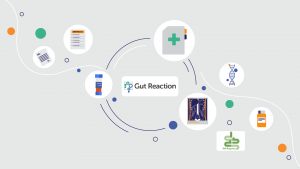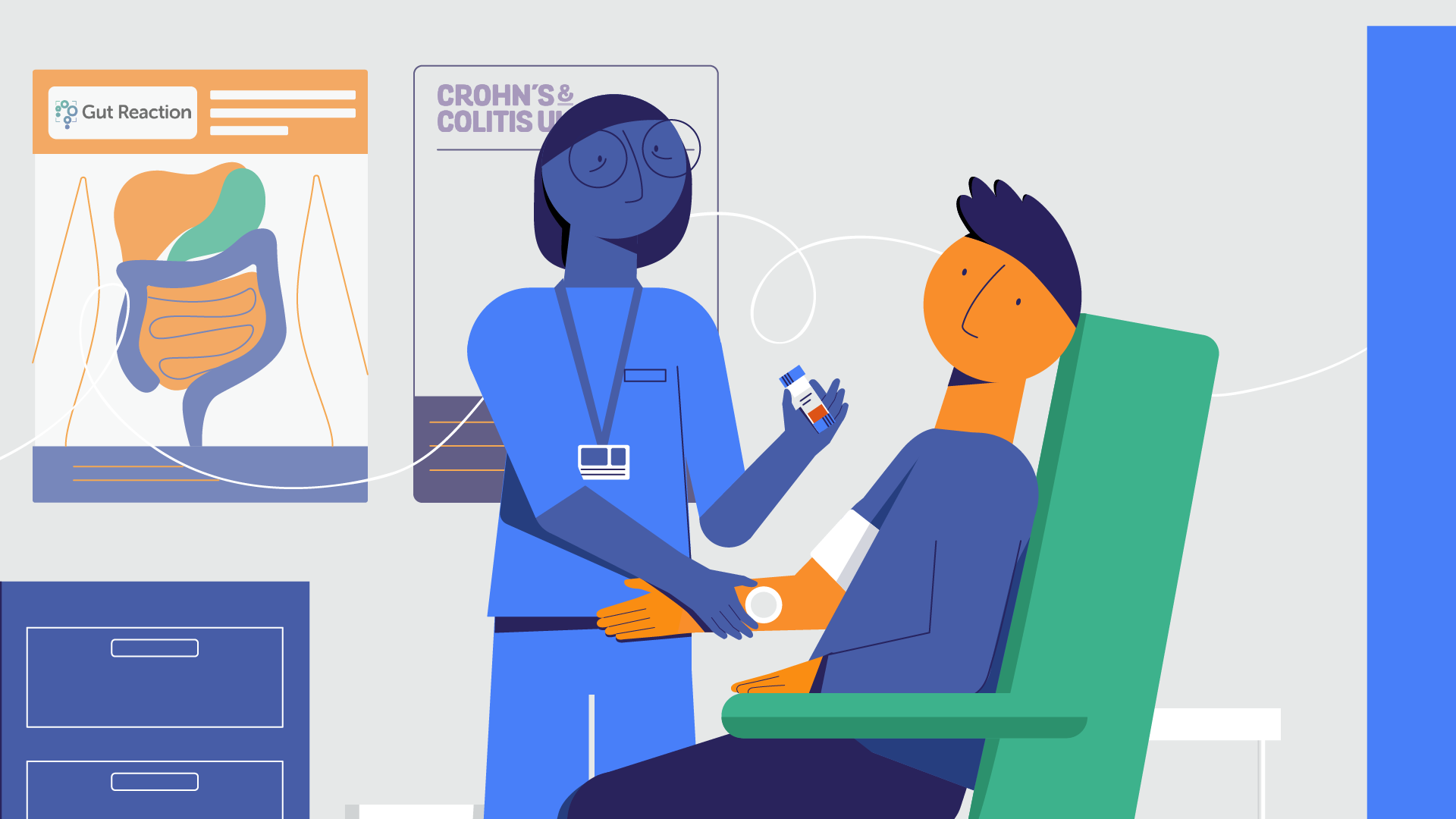Patients/Public
Gut Reaction supports vital research by creating a secure resource of health data from thousands of people living with IBD
People with IBD play a vital part in Gut Reaction
Patients and the public are central to the work of Gut Reaction – without patients consenting to share their data, there would be no research. Patients have been part of Gut Reaction since the start and their views and experiences continue to shape how we function now and in the future.
We understand that some people have concerns about the use of health data in this way, which is one of the reasons why working with patients and the public is so important. Below you can find a short video about Gut Reaction does, and why it is so important for research. We also have answers to some common questions in our Question & Answers section.
Please feel free to get in touch through our contact page if you would like to know more or to get involved, or follow us on Twitter or LinkedIn.
What is health data?
Health data is information about you and your health. It is generated each time you visit your doctor or access NHS treatment and is recorded in your medical or NHS records. Information such as your medications, surgeries you have had or diagnostic tests is usually included.
Health data is also created when you participate in research studies through programmes such as the NIHR BioResource or the IBD Registry. Research data might include information from your DNA, clinical data, surveys or questionnaires you have answered or the results of any studies you have participated in.

Why is my data important?
Your health data helps ensure that you get the correct treatment at the correct time and also creates a detailed picture of your IBD history and journey – from diagnosis to ongoing management. When combined with data from thousands of others living with IBD, health data becomes a powerful research resource that might hold the answers to new ways of diagnosing, treating or preventing Crohn’s and colitis. However, the information is often stored in different locations with different rules for access.
Gut Reaction is making it easier for researchers to use the data held in the IBD BioResource, the IBD Registry and participating NHS Trusts. Bringing this information together in a secure way will support researchers to access the required datasets, speeding research and innovation.
Gut Reaction also focuses on ‘personalised medicine’ – finding the right treatment at the right time for each person. Understanding which treatments are most successful for the thousands of patients already involved in Gut Reaction will allow future patients to avoid the ‘trial and error’ approach currently experienced by many people living with IBD.
How is my data used?
Gut Reaction only uses linked health data from patients who have consented to its use through the NIHR BioResource. We use our expertise in data management to combine this information with data from other sources, which can include your NHS records. When combined with data from other patients, this creates a powerful tool for research. Researchers can apply to access specific datasets to help them answer research questions relevant to IBD.
You can see what kinds of data Gut Reaction holds on the Innovation Gateway and on our data pages. The Innovation Gateway is like a data ‘search engine’ for researchers to find out what data is available for them to do research on.

How do researchers access the data?
To access linked data through Gut Reaction, researchers must first apply through the NIHR BioResource, providing details about their proposed research and why they think it will benefit patients. Researchers are only able to access the specific data sets they need to answer their research question – if they want to ask more questions, they would need to make another application. For details about how to apply to IBD Registry datasets click here.
When a research study is approved, its preparation includes selecting only the data relevant to answering the approved research question. Before access is granted, data is de-identified – this means removing information, such as name or birth date, that could allow an individual to be recognised. Access to data is only provided to trusted researchers if their studies are approved by the appropriate committee, which includes a patient representative. Data requests are reviewed by the BioResource Data Access Committee or the Steering committee (which includes patients) for more complicated requests.
Researchers cannot download or remove sensitive or patient-level data – such datasets are accessed through what is called a ‘Trusted Research Environment’ (or TRE). TREs have security settings that prevent the download, copy or removal of data, but allow approved researchers access to analyse the data and do their research within a secure environment. All researchers also sign a contract, which specifies the rules under which they can use the data and the safeguards they must apply.
How is my data kept safe?
Gut Reaction understands how important it is to keep our patient information safe and private. We have developed processes alongside our patients and expert advisors to ensure that everyone can be confident in Gut Reaction’s work.
We use a framework called the ‘Five Safes’ to make sure that every aspect of our work considers the importance of data safety and privacy alongside making the most effective and impactful use of data. The five ‘dimensions’ are safe projects, safe people, safe settings, safe data and safe outputs.
How are patients involved?
People living with IBD have been part of Gut Reaction from the beginning to ensure that our research benefits those living with Crohn’s or colitis, alongside the wider NHS. Our patient partner, Rosanna, was part of helping to design our programme and is an integral part of the core team. You can read Rosanna’s blog here and her recent interview here.
Gut Reaction also works closely with Crohn’s & Colitis UK and our Patient Advisory Committee (PAC), which provides oversight and input into this project. There are 22 people affected by, or interested in, Crohn’s disease or ulcerative colitis from across the UK on the PAC and they meet regularly with other Gut Reaction team members to ensure that patient priorities and concerns are heard. Their insights and expertise play a vital role in Gut Reaction’s success.
You can read more about different ways to get involved on our ‘Getting Involved‘ page.

